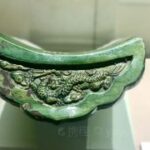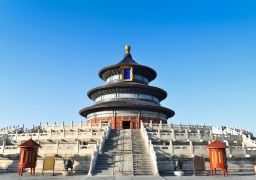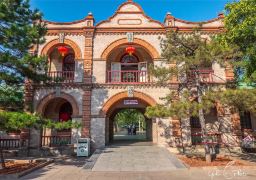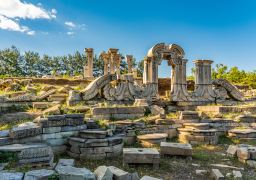Niujie is located in Xicheng District, Beijing, and is renowned not only for its ethnic minority communities but also for the Niujie Mosque, one of the largest and oldest mosques in Beijing. The mosque features a compact layout and a complete structure, with a prominent golden plaque hanging above the main gate that reads ‘Datian Junlu’, marking it as one of the religious activity venues. Originally, this area was a pomegranate garden, and the residential area was briefly referred to as Liu Street.
Due to the majority of its residents being ethnic minorities and their famous beef dishes, combined with the phonetic similarity between ‘niu’ (ox) and ‘liu’ (pomegranate), the street was renamed Niujie. Historically, Niujie was an important area of the Tang Youzhou City, Liao Nanjing, and Jin Zhongdu City, formerly known as ‘Donghu Liucun’; due to its elevated terrain, it was also called ‘Gangshang’. In Zhang Jue’s ‘Jingshi Wucheng Fangxiang Hutongji’ from the Ming Dynasty, it was referred to as the ‘Mosque Street’, and in the Qing Dynasty, it was known as Niujie. Niujie’s snacks are famous for their meticulous craftsmanship, diverse varieties, and appealing taste and aroma. The meat pies, fried cakes, and lamb spines in Niujie Snack City are always in high demand. It is recommended to visit Niujie during the three major local festivals: Eid al-Fitr, Eid al-Adha, and Mawlid, to experience the ethnic minority customs, taste the snacks, and visit Niujie Mosque, which will enrich and enhance your life’s pleasures.Niujie – A Cultural and Culinary Hub in Beijing
Niujie is located in Xicheng District, Beijing, and is renowned not only for its ethnic minority com[...]









